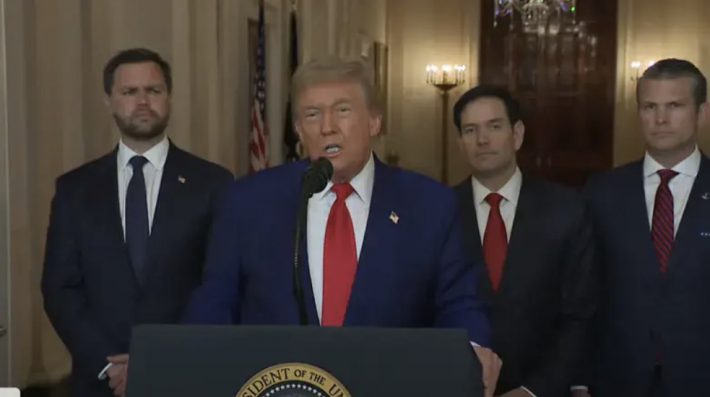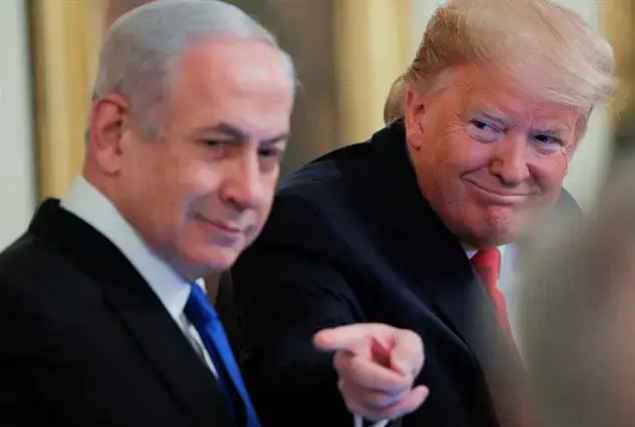A preliminary probe of the consequences of the current war for four major players – Iran, Israel, the Arabs and the Arab Palestinians. Opinion.
Against the background of the Israel-Iran clash, four Middle Eastern players, whose moment for introspection beckons, are likely to (re)evaluate their collective identity and future role. Here is a preliminary probe of the consequences of this historic confrontation:
*Iran, the paramount Shi’a state in the world, will reflect on the validity and practicality of its singular Islamic religious faith. Their sectarian narrative of suffering and victimhood mutated with the 1979 revolution into an aggressive drive of religious militancy, military strength, and strategic hegemony. In short, a theocratic totalitarian regime with imperialistic goals.
It mobilized regional proxies constituting the so-called Axis of Resistance – especially Hezbollah, Hamas, Palestinian Islamic Jihad, and the Houthis – announcing its ambition, tipped in nuclear warheads, to massacre Jews and annihilate Israel. The long-awaited return of the occult Mahdi as an apocalyptic finale failed to unfold. Reaching for transcendence, Iranians lost touch with the real world.
*Israel, 75 times smaller than Iran and with about one-tenth of its population, has “risen as a lion” (the name for its military campaign). She crushed Hamas, crippled Hezbollah, and defiantly blasted-off to dethrone Iran as a regional power. Israel has captured a pivotal role in Middle Eastern geo-strategic terms. The opportunity has come for the small ancient homeland to serve as a springboard toward greatness and leadership.Against the background of the Israel-Iran clash, four Middle Eastern players, whose moment for introspection beckons, are likely to (re)evaluate their collective identity and future role. Here is a preliminary probe of the consequences of this historic confrontation:
*Iran, the paramount Shi’a state in the world, will reflect on the validity and practicality of its singular Islamic religious faith. Their sectarian narrative of suffering and victimhood mutated with the 1979 revolution into an aggressive drive of religious militancy, military strength, and strategic hegemony. In short, a theocratic totalitarian regime with imperialistic goals.
It mobilized regional proxies constituting the so-called Axis of Resistance – especially Hezbollah, Hamas, Palestinian Islamic Jihad, and the Houthis – announcing its ambition, tipped in nuclear warheads, to massacre Jews and annihilate Israel. The long-awaited return of the occult Mahdi as an apocalyptic finale failed to unfold. Reaching for transcendence, Iranians lost touch with the real world.
*Israel, 75 times smaller than Iran and with about one-tenth of its population, has “risen as a lion” (the name for its military campaign). She crushed Hamas, crippled Hezbollah, and defiantly blasted-off to dethrone Iran as a regional power. Israel has captured a pivotal role in Middle Eastern geo-strategic terms. The opportunity has come for the small ancient homeland to serve as a springboard toward greatness and leadership.
*Arabs, possessing 21 states while cultivating the vision of a single pan-nationhood, based on bonds of history and language, are witness to repeated disappointments. When Islamic (Persian Shiite) Iran raised the flag of ideological purity and holy war against Israel, the Arab world split with Syria’s defection, Qatar’s equivocation, and Lebanon’s submission. Iran, with its proxy satellites, became a bitter competitor and threat to Arab Sunni Islam for regional Muslim leadership.
Israel, initially enfeebling Tehran’s terrorist partners since October 2023, flew out on June 13, 2025 to strike Iran’s military capabilities, nuclear infrastructures, and senior regime personnel. Arab passivity toward Iran, fearing her strategic over-reach and bellicosity, contrasts with Israel’s pro-active success. As a result, the abiding Arab ideological antipathy to the Jewish state, regardless of paper peace agreements with Egypt and Jordan, calls for acknowledging Israel, my enemy; Israel my savior.
Jews saving Arabs from Persians is a strange and unforeseen turn of events. Thanks to Israel, Saudi oilfields are more secure and Sunnis more assured, from both an Iranian attack and Shiite proselytization.
*Palestinian Arabs, the nemesis of the Arab world and Israel, have wrought suffering and havoc for all who stood in their path. They rebelled in Jordan, subverted Kuwait, set Lebanon on fire, and first among the targets – maliciously murdered Jews in the long war since 1948. Arabs and Iranians coddled Palestinians, armed and financed them, for no gain or victory.
Palestine, for an unarticulated non-people, is politically dead. The ideological weightless Palestinian card – always over-played – is no longer in the political deck. When Palestinian Arabs butchered innocent Israelis at the Be’eri kibbutz near the Gaza Strip on October 7,any pretension to a legitimate struggle for liberty was unmasked.
“In the Middle East you are dealt a different deck every day,” wrote historian Elie Kedourie. Cultivating agility while seeking clarity, everyone can learn anew how best to play their cards.
Dr. Mordechai Nisanis a retired Israeli professor and scholar of Middle East Studies at the Rothberg International School of the Hebrew University of Jerusalem. He also taught at Bar-Ilan University, the Open University, and the University of the Holy Land, was a contributing expert to the Ariel Center for Policy Research and a research consultant for the Jerusalem Institute for Western Defense. Nisan has written extensively in English and Hebrew.





